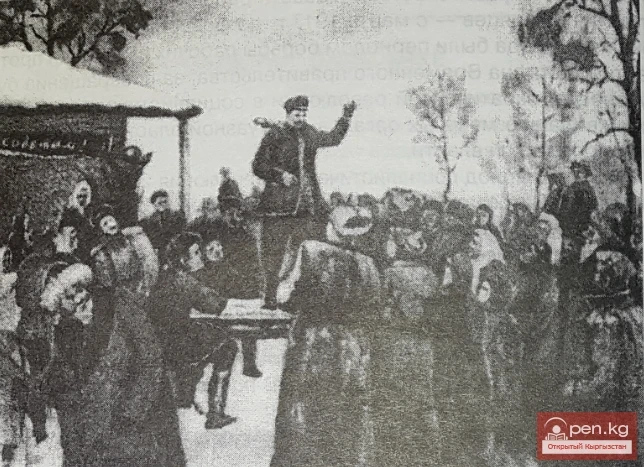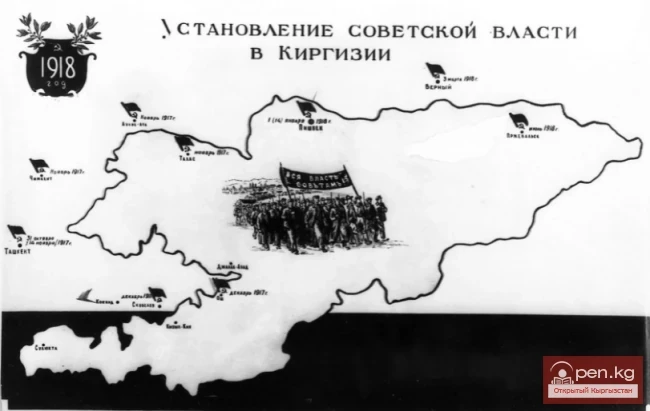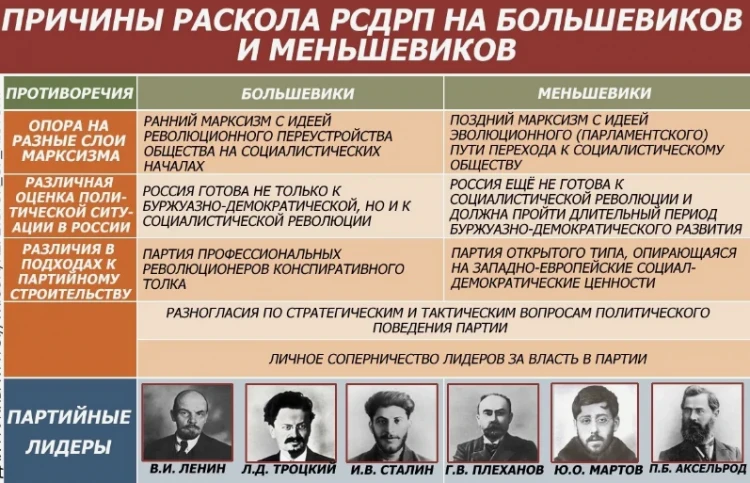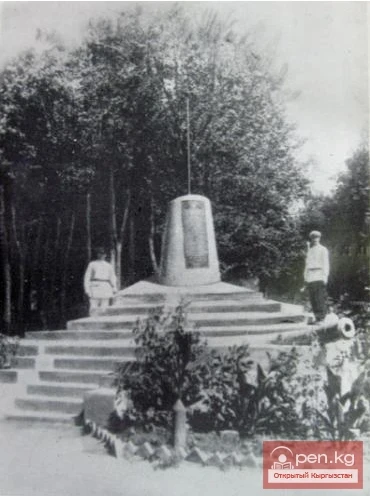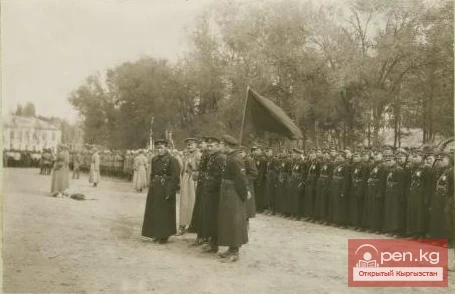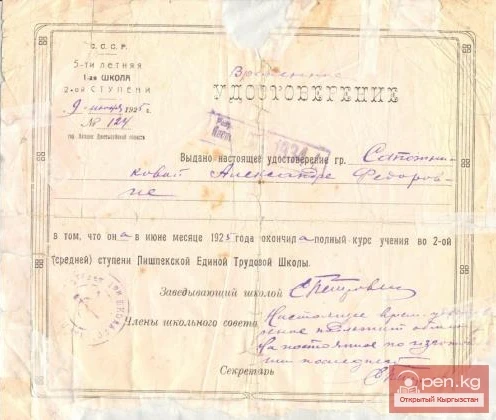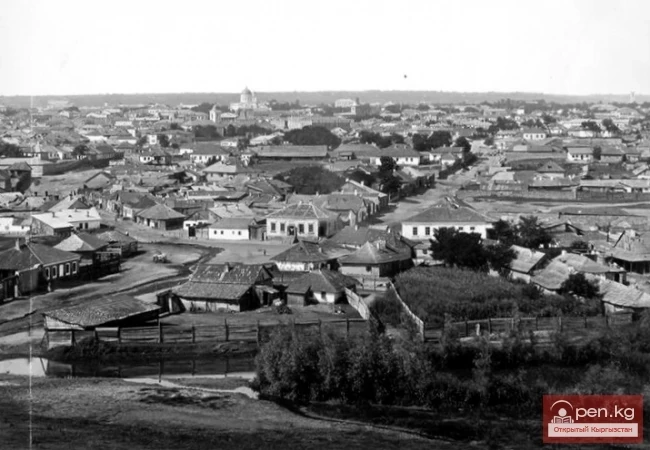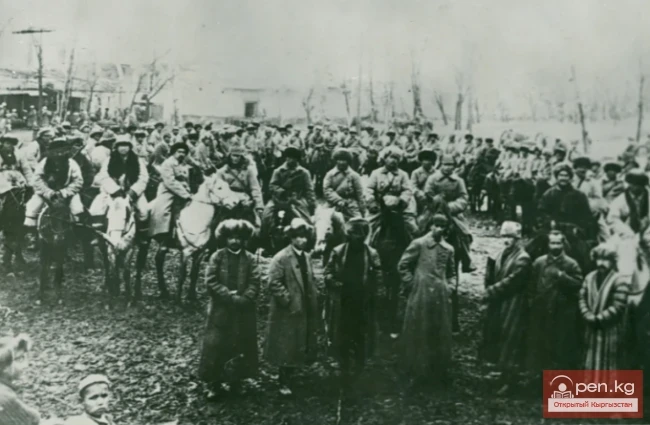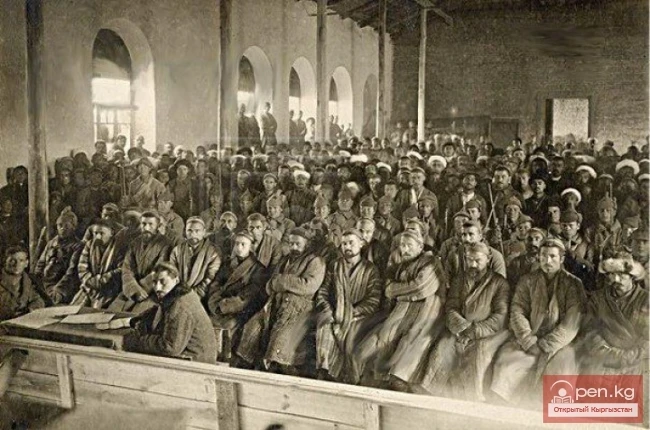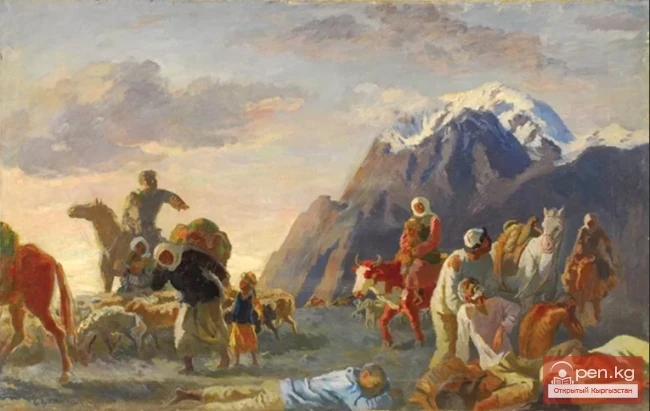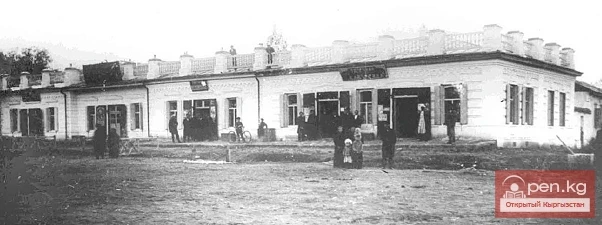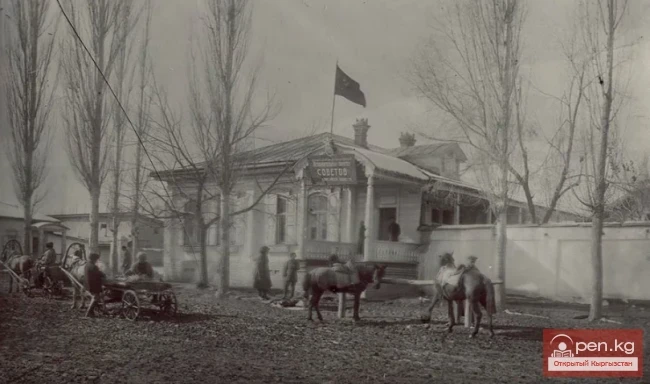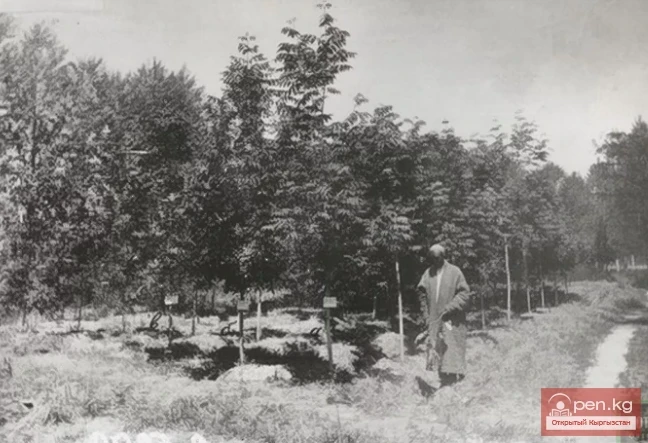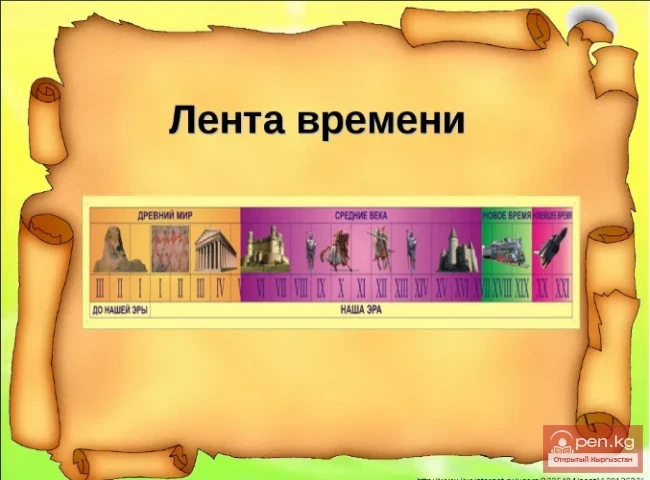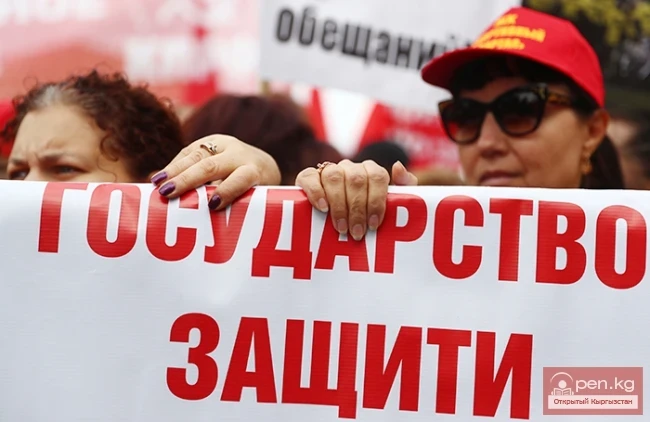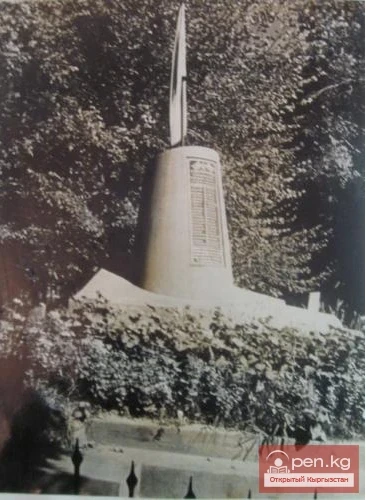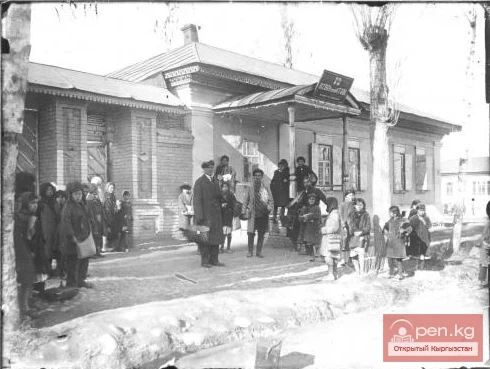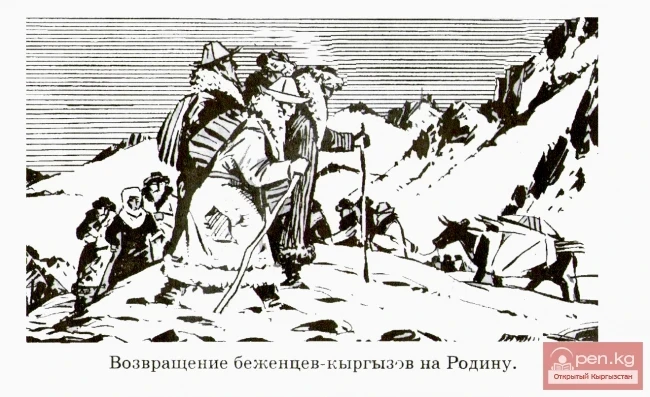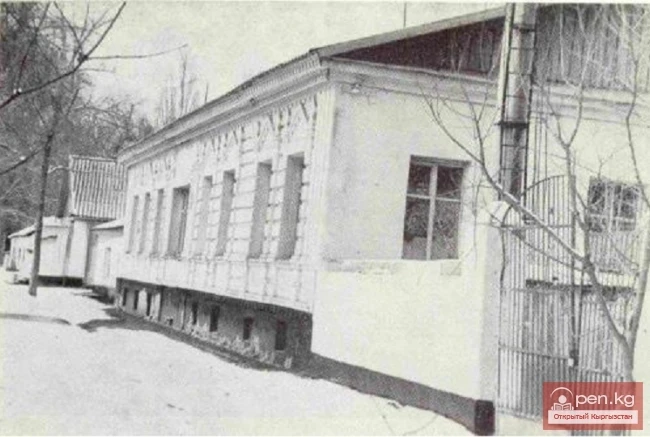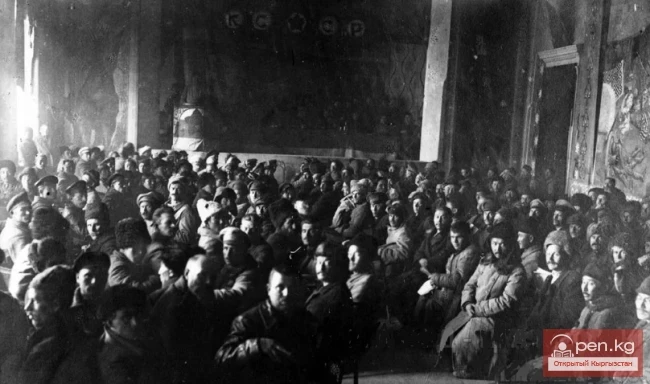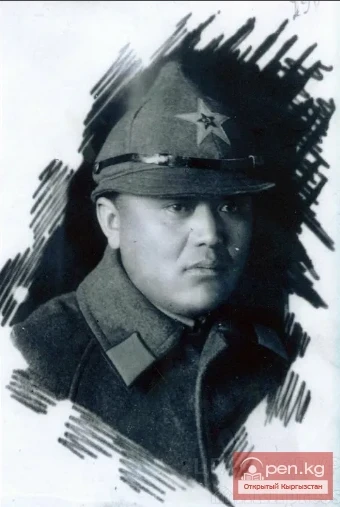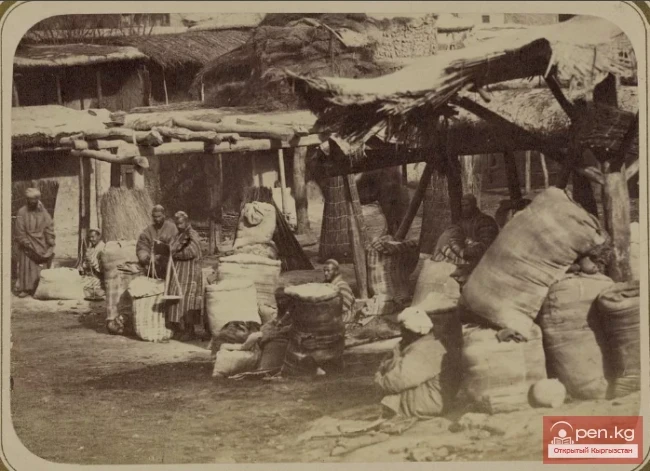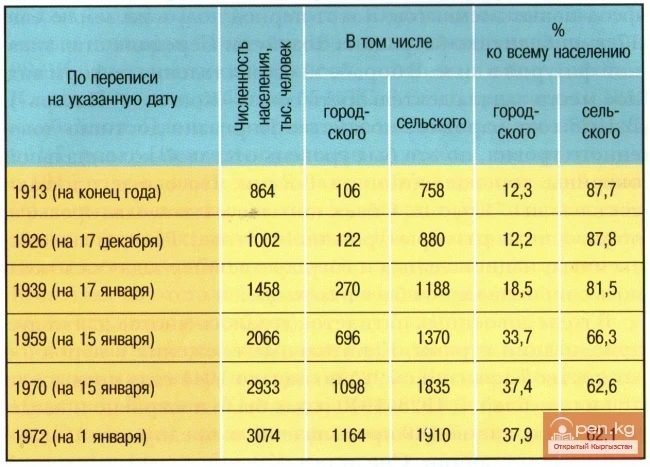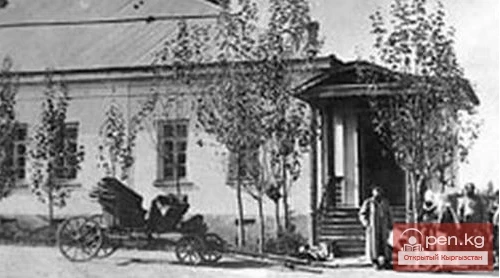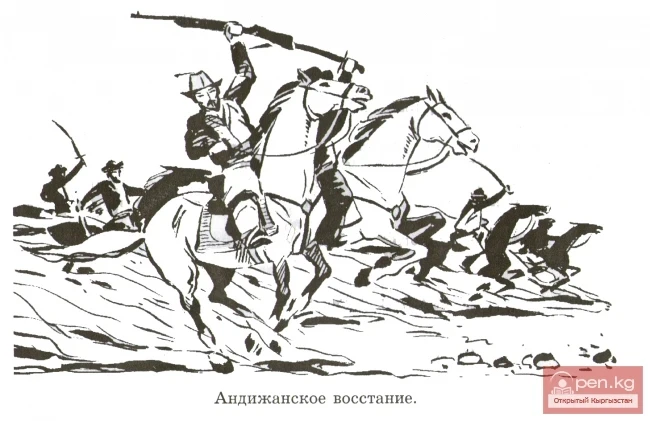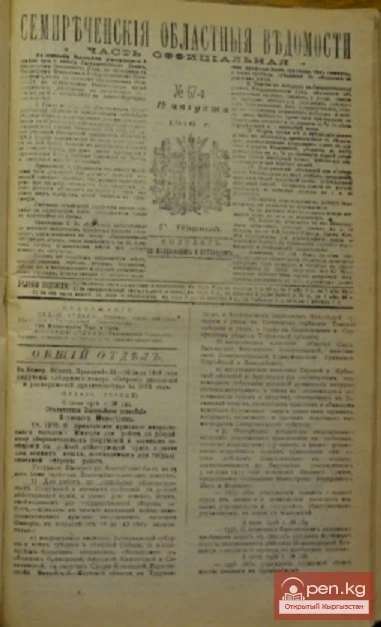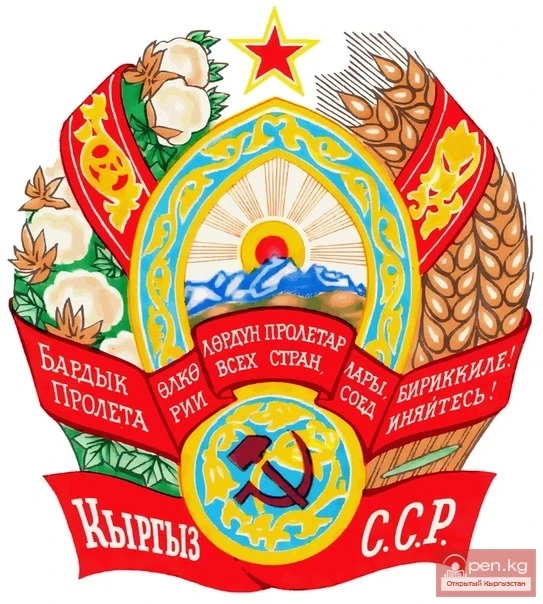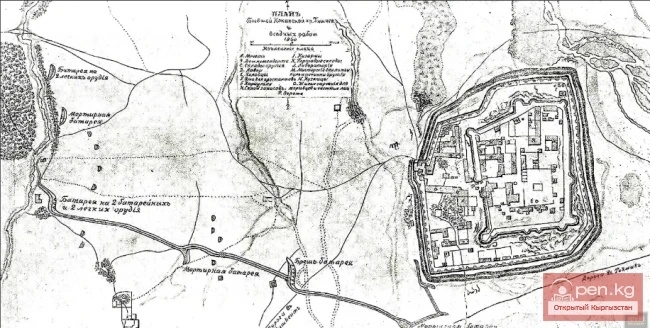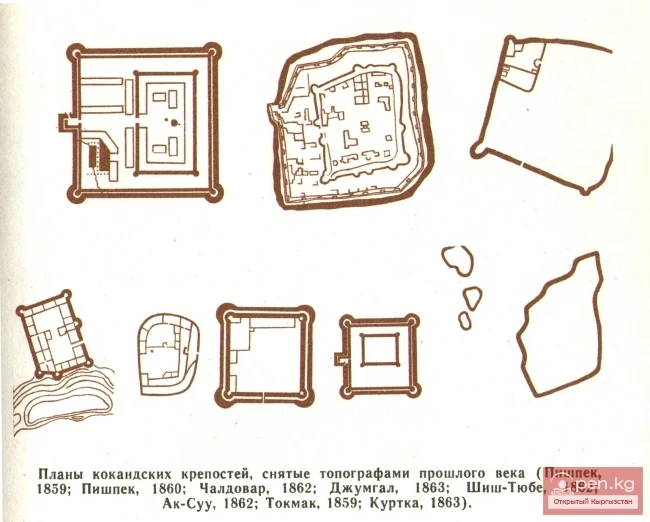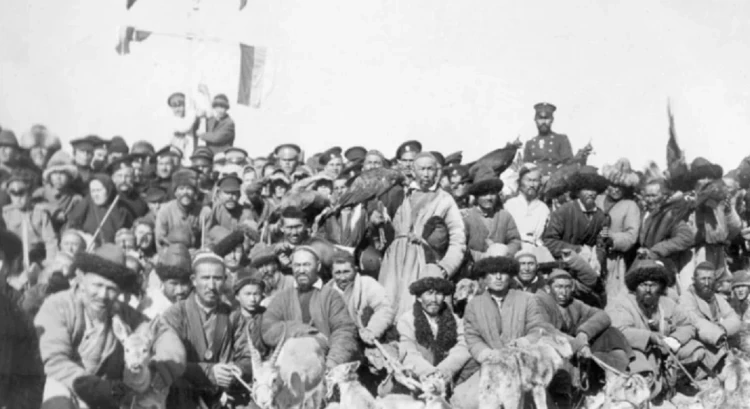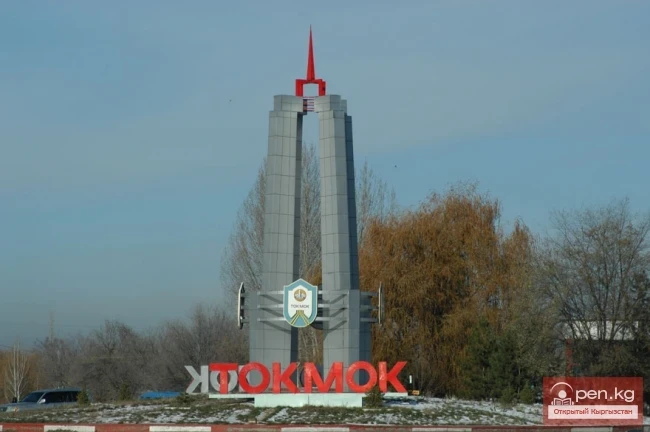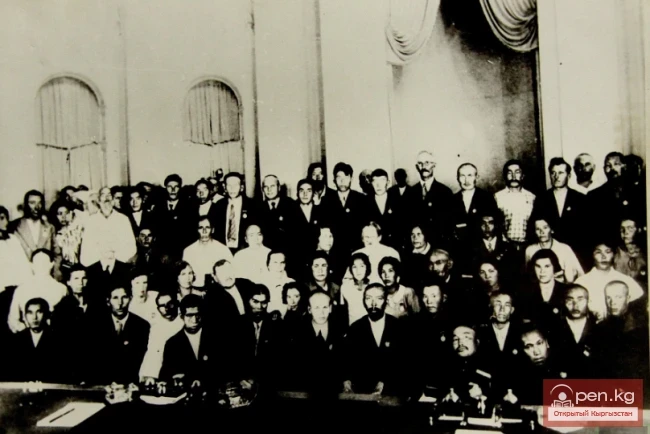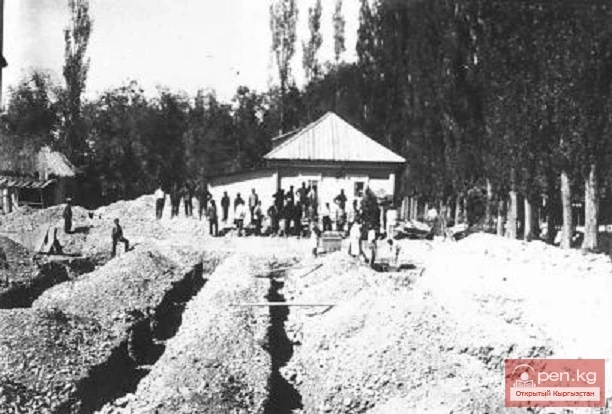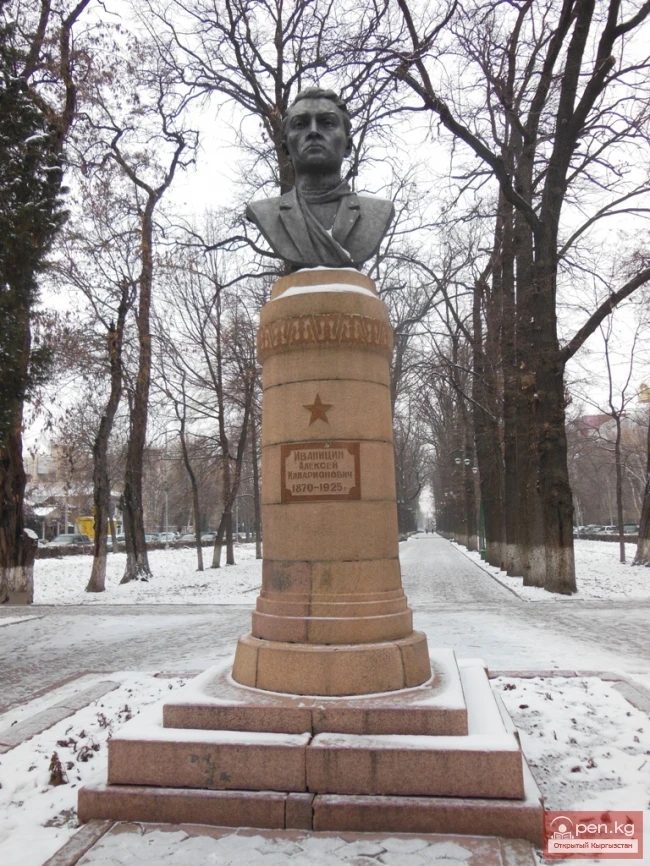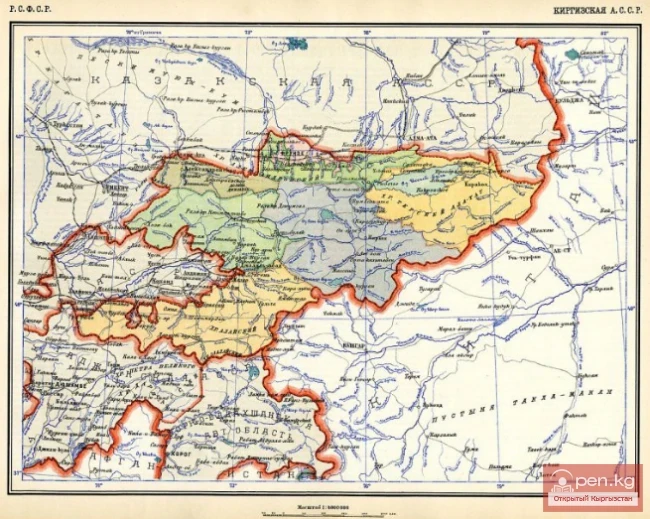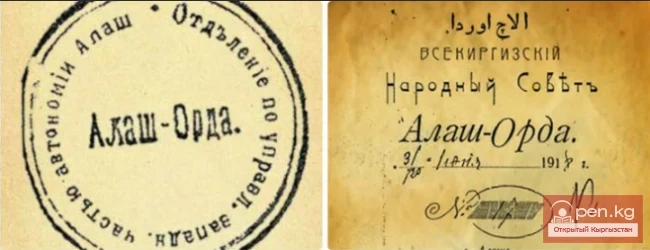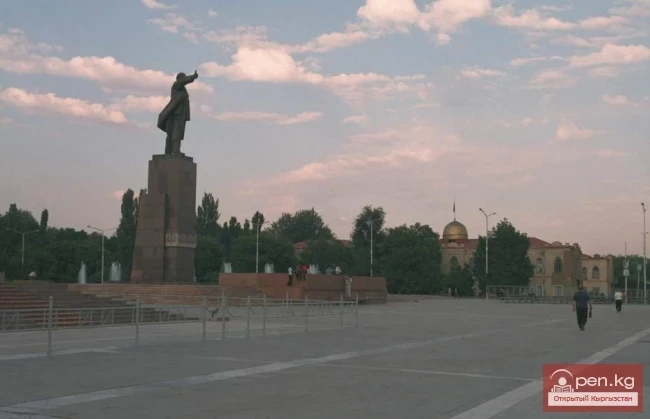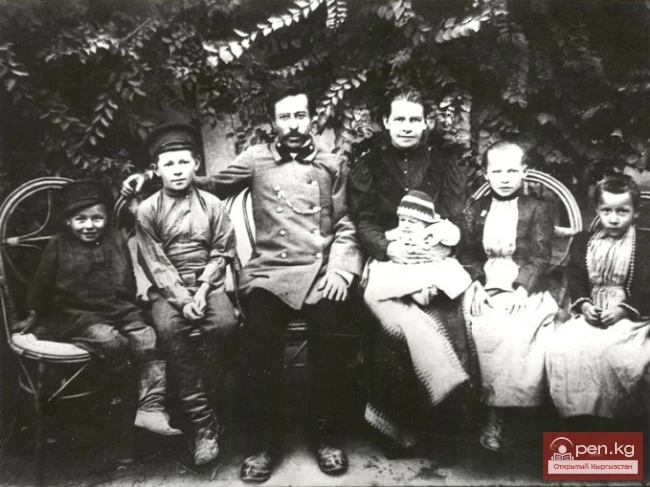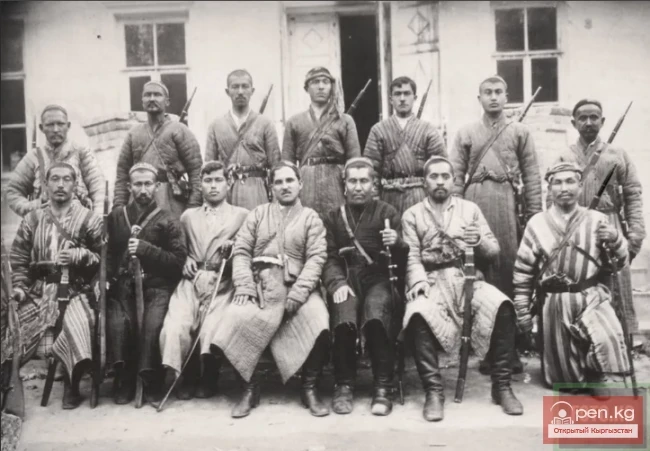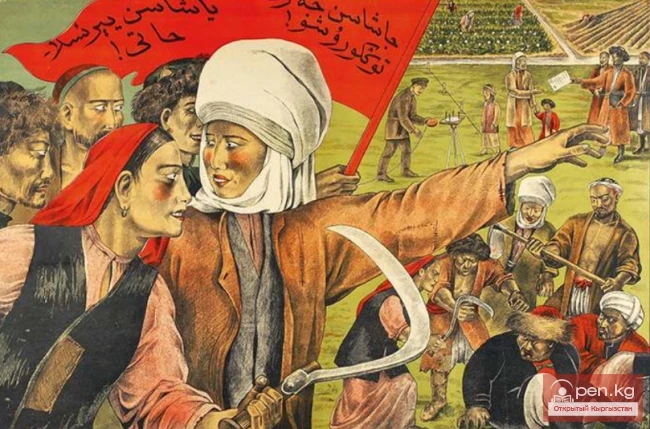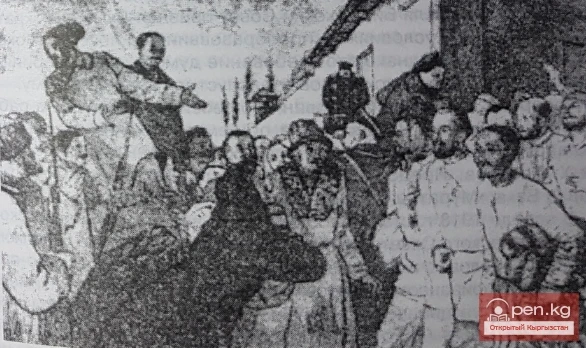
The Beginning of the Recognition of Soviet Power in Pishpek and the District
In the summer, front-line soldiers began arriving in the city. They quickly found common ground with the soldiers of the Pishpek garrison. The poorest population began to side with the revolution. The garrison was propagandized by the Bolsheviks. In November 1918, rallies of workers, soldiers, and peasants—diykans—were frequently held. From the suburban villages and artisans, they began to present a united front demanding the transfer of power to the people. Pishpek was becoming the center of revolutionary struggle in the Chui Valley.
On December 31, 1917, the Bolsheviks, together with the front-line soldiers, convened a rally in Dubovy Sad, distributing leaflets printed on a typewriter. The rally was attended by the union of workers and artisans, the union of the Kyrgyz poor "Bukhara," front-line soldiers, and more than a thousand people. It also included peasants and dehkans who arrived from nearby villages and ails. A supporter of the Bolsheviks, Shadilov, was elected as the chief of police. It was decided to create a people's militia to seize power. Immediately, 200 people signed up for it. The commander of the militia was elected Bolshevik Grigory Bezborodoe. The rally on December 31, 1917, marked a turning point in the development of revolutionary events in Bishkek. On New Year's Eve, the militia smashed the headquarters of the Cossack regiments in the city; the armed forces were already on the side of the revolution. The militia was declared a Red Guard unit.
The next day, January 1, 1918, at an expanded meeting of the Pishpek Soviet with the participation of members of the democratic union of workers and artisans and the "Union of Bukhara," new elections for the council were held. Supporters of the Provisional Bourgeois Government—the Mensheviks and Socialist Revolutionaries—were removed from it.
Grigory Ivanovich Bazarny, a 40-year-old serviceman from the Voronezh province and a participant in the revolutionary movement in Russia in 1905, was elected as the chairman of the Bishkek Soviet on an alternative basis. As a clerk in the Pishpek garrison, he conducted revolutionary work among the soldiers and was a member of the Pishpek Bolshevik group.
On the same day, the Pishpek Soviet approved the resolution of the city rally from December 31, 1917, on the creation of a combat militia.
Terrified by this coup, the city elder I.D. Vasilyev appealed to the Governor-General of Turkestan for help. However, he could not obtain it. On February 4, 1918, being tied to the Siberian White Guard government, the Pishpek City Duma submitted a referendum—popular vote proposals: 1—on joining Pishpek to the Siberian government; 2—on joining Tashkent to Petrograd; 3—on joining the Constituent Assembly of Russia. According to the results of the voting on January 22, 1918, the Pishpek City Electoral Commission stated that a total of 3,325 people participated in the voting. Of these, the votes cast were: for the Siberian government—21, for joining Tashkent to Petrograd—277, for the Constituent Assembly of Russia—3,027. The City Duma's bet on the White Guard government of Siberia failed.
By this time, the recognition of Soviet power had begun not only in Pishpek but also in the district. Thus, the assembly of residents of the Bakinskaya volost on January 2, the village of Yurievka on January 8, and the citizens' meeting of the Novo-Pavlovsk volost on January 13 adopted resolutions recognizing Soviet power. The union of workers and artisans on January 28, and the assembly of citizens from the Petrovsky village on January 31, 1918, delegated their representatives to the Pishpek Soviet.
Acting as an organ of power, the Pishpek Soviet, to establish business contact with the regional authorities, sent its representative Maxim Krutogolov to Tashkent on January 27, 1918. The Soviet decided to convene a congress of the Pishpek district Soviet on February 5, 1918, under the leadership of the Bolsheviks of the Red Guard unit with the participation of members of the union of workers and artisans and the "Union of Bukhara." A revolutionary coup was carried out in Pishpek. Power passed into the hands of the insurgents, and the barracks and armories were in the hands of the Soviet. The Red Guard unit, accompanied by townspeople, headed to the prison, where political prisoners arrested by the Provisional Government were released.
The Coup in Pishpek in March 1917
